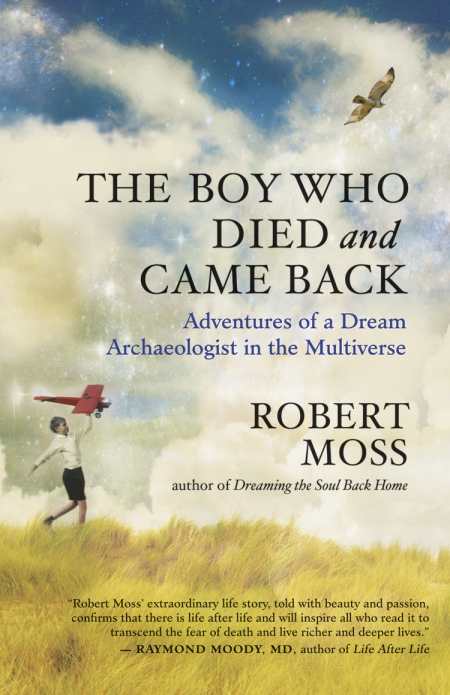The Boy Who Died and Came Back
Adventures of a Dream Archaeologist in the Multiverse
Moss infuses the magical with the mundane in a manner that lends real weight and volume to their narratives.
Robert Moss’s The Boy Who Died and Came Back opens with “Offering,” his poetic invocation of the Muse, which begins:
“Sing in me, creative spirit
of the boy who died and came back
and the man who flew through the black sun
and returned to walk the roads of this world.”
It’s appropriate for many reasons, the most obvious being it provides a foretaste of the sumptuous language, lush imagery, and fantastic narratives to follow. Moss is a captivating storyteller with an eye for detail, possessed of impeccable timing and the ability to inhabit his characters wholly—all fine qualities displayed in this, his spiritual memoir.
More fittingly, it’s also a spell, one that provides a map outlining the general shape of both book and author. For this is an autobiography like no other, one chiefly concerned with how Moss’s childhood afflictions and other unusual, otherworldly experiences uniquely equipped him for a life serving as a dreamworker, shaman, and ambassador for what he calls the Other Side.
By the close of “Offering,” the benign purpose of both the creator and his creation are revealed to be equally intertwined and singular—to effectively capture Moss’s otherworldly experiences as accurately and completely as possible, so that those seeking their own answers may find a sense of direction, deep healing, or a glimmer of insight to help guide them on their own personal metaphysical quests.
And that is precisely what Moss does, relating his ethereal excursions with real concision, providing details and a multitude of sensory information that endow even his wildest adventures with a vivid, pulsing life. Whether he’s encountering one of the many spirit guides that populate these pages or discussing the afterlife with the crew and passengers of a jet, Moss conjures forth each moment effortlessly. It’s a rare talent that can infuse the magical with the mundane in a manner that lends real weight and volume to their narratives. Moss not only possesses it, he wields it with masterly precision.
Still, the crux of this volume is ultimately less concerned with how beautifully Moss renders his scenes or how well he entertains, and more focused on providing effective guidance for others blazing their own paths toward enlightenment. Believer and skeptic alike will discover that time spent with Moss will be enjoyable and perhaps life-changing.
Reviewed by
Bill Baker
Disclosure: This article is not an endorsement, but a review. The publisher of this book provided free copies of the book to have their book reviewed by a professional reviewer. No fee was paid by the publisher for this review. Foreword Reviews only recommends books that we love. Foreword Magazine, Inc. is disclosing this in accordance with the Federal Trade Commission’s 16 CFR, Part 255.

